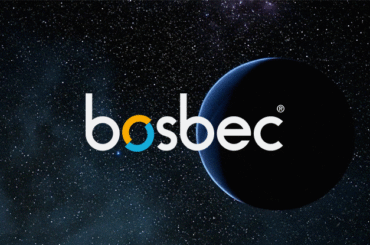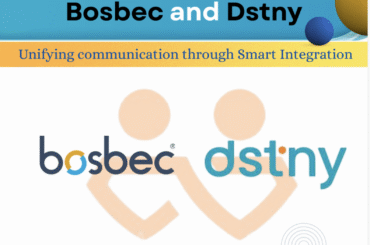When we slowly and gradually are starting to return to normal, we all need to ask ourselves the question of what ’normal’ is. Is it really beneficial to return to the way things were before the pandemic took hold? More companies are seeing the work from home as a viable option after having been forced to embrace the concept in order to ensure physical distancing and the wellbeing of its employees. We decided to have a chat with a veteran on the subject; managing director of the virtual communications consultancy Indaba, Lisa Shaddick. We talked about her experience of operating as a virtual office for more than ten years, the ins and outs of managing a remote team and what benefits, challenges and opportunities working from home offers.
Hi Lisa! We’re excited to learn more about working from home and virtual companies from a pro. Let’s begin with an introduction – tell us briefly about yourself and what your company does?
I am the managing director of Indaba. We are a marketing communications and branding consultancy, and we have a 16-strong multi-lingual, multi-national team. We work across 20 markets in Europe as well as South Africa. We specialise in corporate comms, B2B and internal comms in the automotive, tech and transport sectors.
So, a unique feature of Indaba is that it’s completely virtual with no physical office. Tell us about what led you to the decision to go fully remote?
We were doing fully remote working as a team long before it became cool, or the coronavirus forced people into it. We moved out of our central London offices in 2009, during the global financial crisis. We had lost two retainer clients in 2008 and had tried to make savings everywhere we could. But it became very clear we either needed to lose the office, or to start losing people. At that point the decision was very simple – the office had to go. And we have never looked back.
It must have been a quite groundbreaking thing to do in 2009. What were the biggest challenges at that time?
Almost no one was completely virtual back then – some companies were offering limited flexible working, and working from home Fridays, viewed by many as a day of zero productivity – so it was a big risk for us. We were nervous about how our clients – predominantly large corporates – would view the move. But we were completely transparent about why we had made the decision, and we knew if we continued to deliver our same exceptional service, they wouldn’t care if we were all sitting in an office or not.
What do you believe made Indaba succeed as a virtual bureau? Can you give us any tips?
We are rigorous with our internal communication. We have an open-door policy, which sounds strange for a virtual consultancy, but that means we all have the ethos that we communicate as if we were sitting next to each other. We encourage people to simply make that Teams video call – don’t ask to plan one. So, just as you would walk over to someone’s desk and have a chat about something, make the Teams call. It may not be a convenient time but keep those channels of communications open. After all, Indaba is the Zulu word for conversation, which is communication at its best. We always say “if we can’t communicate well, we shouldn’t be doing our job for our clients”.
Many companies are considering to keep remote working in place even after worst Corona peak has passed. What do you believe is important to consider before making that decision?
As soon as lockdown happened, I immediately wondered how many companies would not go back to their offices once they experienced the benefits of remote working. There are different considerations for every business, but I believe an office is an old-fashioned construct. Technology today allows you to be everywhere you need to be. Even when we had our office, if we were pitching for work in France, for example, the client would say, but you don’t have an office in Paris. My reply was always, but your stakeholders are not all Paris-based. Taking this to its logical conclusion, you would need an office in every town and city. Luckily technology allows us to do just that, from one location. My overriding consideration would be: can we be as productive and continue to deliver our services just as well if not better remotely. And if you can, then you don’t need an office.
What are the greatest challenges you encounter today as a virtual company? When the is team spread out rather than gathered in one office?
Recruitment is probably the greatest challenge. Potential recruits tend to fall into two categories: they have never worked remotely (other than the odd Friday) and love the idea of being home all day, or they are seasoned remote workers. Loving the idea of working from home, and having the discipline to do it, day in and day out, are two very different things. I am sure that lockdown will have driven that point home to many people. Friends who have been envious of my work set up are now saying they don’t know how I do it because it demands such a high level of commitment and discipline. Working from home full-time is not for everyone, so we look for people who have a good track record at it; there is a huge amount of trust you give a new employee when you are virtual. We have only been burned twice in 11 years, which I don’t consider too bad!
What are the greatest benefits of a remote work environment and team?
Without a doubt the agility and flexibility that today’s technology affords us. All our devices are connected and synced, we can access everything, everywhere; it’s fantastic and means that basically anywhere with an internet connection is our office.
Do you have any pro-tips on how to manage your employees as a virtual employer?
Given how tricky recruiting can be, we tend to hire senior practitioners. That’s not to say they don’t need thoughtful on-boarding, managing or overseeing, particularly as nearly all of our work is multi-country, working to a common brief. The best tip I can give is this: communicate often, clearly and consistently, and be open to feedback, questions and conversation.
What do you believe is important to think about to keep up a team spirit as a virtual agency?
Great question! We have quarterly face to face meetings with the team and we ensure there is a hefty aspect of socialising at those. And that’s because it’s the “water cooler” moments the team doesn’t have, so these meetings are a great way for them to reset and to reconnect on a personal level in a relaxed environment. Shared experiences also play an important role in establishing that team spirit, so we may do a wine tasting, or a cooking school event, or a cocktail masterclass.
The digital aspect – what are the greatest challenges?
When we first moved out of the office in 2009 there were no real, workable cloud solutions, so it was much more labour intensive to keep things accessible for a remote team. We used an online back up software as a work-around for a few years – that was so clunky and slow to use, but it worked even though we all really disliked it. Today of course, we can collaborate on documents in the cloud, and files are synced across devices instantaneously. We have been working in partnership with an external IT company for many years who is our digital backbone – they do IT implementations, help on-boarding new team members and act as a helpful and fast support hotline if anything goes wrong. It is not overstating things to say technology has taken things to a whole new level.
Can you think of anything that would make your work easier, technology-wise?
For our industry, we would benefit from further digitalisation and development of various press services, for example a fully and properly European press database. At the moment there are only national databases available or some that claim to be European but that only really reach a few markets and don’t even do those very well. Perhaps that is something that will change with the digital shift that is currently underway on a much wider and global scale.
Corona and the following financial crisis have been the dominating subject of this year this far. Crisis communication is vital – what do you believe is important to think about both for internal as well as external communication with clients and costumers?
Absolutely it is. To be honest, communications – particularly internal comms – is vital all the time, not just in times of crisis. Employees are a key stakeholder for a business regardless of its size, so treating them with the same respect and care as you do an external stakeholder group should be best practice and not an afterthought.
Can you think of any specific action that Indaba have taken during the Corona pandemic?
We have kept the team up to date on what we were doing as a company – being guided by the government and the national health service recommendations of course. We also provided links where they could find more information, and made our HR officer available if people had questions. On a more interpersonal level, we started a weekly team call on a Friday afternoon. We utilised Zoom for this so we could all see each other, as Teams didn’t have that functionality at that point. This was really well attended the first five weeks or so, and since then – perhaps as we have all gotten more used to the situation and we are less uncertain about things – interest has tailed off, so we have moved it to a monthly call. We are not prescriptive about what we discuss – sometimes it is what we have all watched on TV, or the challenges of home schooling, or how we are coping with our partners *there* all day. Sometimes, particularly in the beginning, it was more serious; everyone felt it was a safe place to express their worries and feel supported.
Lastly – what is your own personal view on the future of work?
I believe that lockdown will see more companies recognising the benefits of working from home. Apart from cost-savings, there are the obvious environmental benefits to remote working, which can’t be ignored. Technology gives us the freedom to be connected, engaged and everywhere we need to be, so when you can work from literally anywhere, why be tethered to an office desk?
Thanks Lisa for an interesting chat – it’s been insightful to learn from someone who has been experiencing the digital journey and its benefits for a long time. We’re hopeful that the future of work brings new and unprecedented opportunities for companies all over the world. Thank you!



